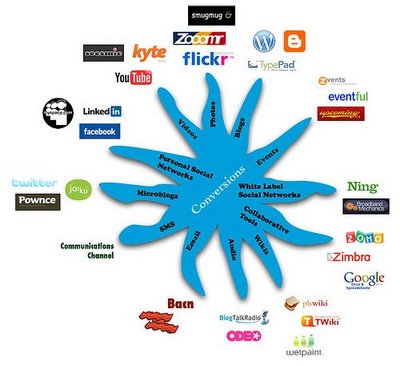Long Live Wiki-Diplomacy
CNN |
By Parag Khanna
Since the WikiLeaks scandal exploded at the end of last year, many commentators have declared this episode marks "the end of diplomacy." Nonsense.
For almost two centuries, even world leaders have feared that communications technology would marginalize diplomacy's special role in international relations.
When Lord Palmerston received the first diplomatic cable at London's Whitehall in the mid-1800s, he proclaimed, "This is the end of diplomacy!"
In the 1970s, Canadian premier Pierre Trudeau remarked that he could replace his entire foreign ministry with a subscription to The New York Times.
No doubt the mass media and internet have forced diplomats to be quicker on their feet, both in terms of collecting and analyzing information from abroad and analyzing it for policymakers. But that doesn't mean diplomacy is dying. Instead, it is adapting as it always has.
Technology and capitalism are driving diplomacy in fascinating new directions, but not for the first time. It was well before WikiLeaks that the who, what, when, where, why and how of diplomacy were thrown into flux.
Globalization and the rise of multinational corporations after the World War II created a "triangular diplomacy" among states and firms -- neither dominating the other as corporate supply chains grew and expanded. Then after the Cold War, the explosion of telecommunications and the internet helped multiply the number of players and agendas in the diplomatic game.
Diplomacy today takes place among anybody who's somebody. Its prerequisite isn't sovereignty but authority -- something companies, churches, universities, humanitarians and many other entities have a great deal of when it comes to money, manpower, resources and morality.
When we think of diplomacy today, we should think of it as much more than just the annual United Nations General Assembly.
There are about 200 countries that have relations with one another, but also close to 100,000 multinational corporations that constantly negotiate with governments and one another, and at least 50,000 transnational nongovernmental organizations that consult on international laws and treaties and intervene in conflict zones to provide assistance to regimes and peoples in need.
Diplomacy has become a hypercomplex ecosystem of perpetual engagement among all these players.
In fact, the best analogy to diplomacy today is a massive multiplayer online game. Even cyberspace is already alive with virtual diplomacy: Sweden, Brazil and other governments have opened virtual consulates in the universe of Second Life, where James Glassman, former U.S. undersecretary of state for public diplomacy, held debates with Egyptian bloggers.
Last year, Sen. John Kerry, D-Massachusetts, proposed the creation of an ambassador for cyberspace. Now that Google and DARPA (Defense Advanced Research Projects Agency) are pioneering handheld universal translation devices, everyone can be a diplomat.
The WikiLeaks story is far from over -- witness last week's uprising in Tunisia, partially inspired by a U.S. diplomatic cable that brought an end to an American-allied regime.
As WikiLeaks or its allies and imitators gain steam, they will prove just how involved all these new actors are in diplomacy.
There have already been leaks pertaining to Google's confrontation with the Chinese government, a reminder that technology companies have been fighting their own diplomatic battles for years. Imagine what the next set of WikiLeaks disclosures would uncover if coming out of Japan, France or Brazil, countries whose commercial policy basically is their foreign policy.
But rather than spelling the end of diplomacy, WikiLeaks reinforces the rise of wiki-diplomacy, a potentially collaborative space for the dot.gov, dot.com, dot.org and dot.edu sectors to share information and resources in new coalitions to make problem-solving more effective. Wiki-diplomacy is already transforming the world for the better.
From microcredit to energy conservation, NGOs, companies and governments are teaming up to spread the best models around the world. Wal-Mart and the Environmental Defense Fund have joined forces to make the supply chain at the world's largest company greener. The Gates Foundation has worked with governments across Africa to curb HIV infection rates and spread vaccines. Wiki-diplomacy is a milestone in shifting away from the traditional diplomacy of asserting differences towards a diplomacy that encourages unity.
WikiLeaks is a vital reminder that in the information age, keeping secrets will be difficult for anyone. But that will surely mean everyone will have to explain themselves more than ever -- through diplomacy. It is, after all, the second-oldest profession.
Parag Khanna is a senior fellow at the New America Foundation and author of How to Run the World: Charting a Course to the Next Renaissance, published this month by Random House.
